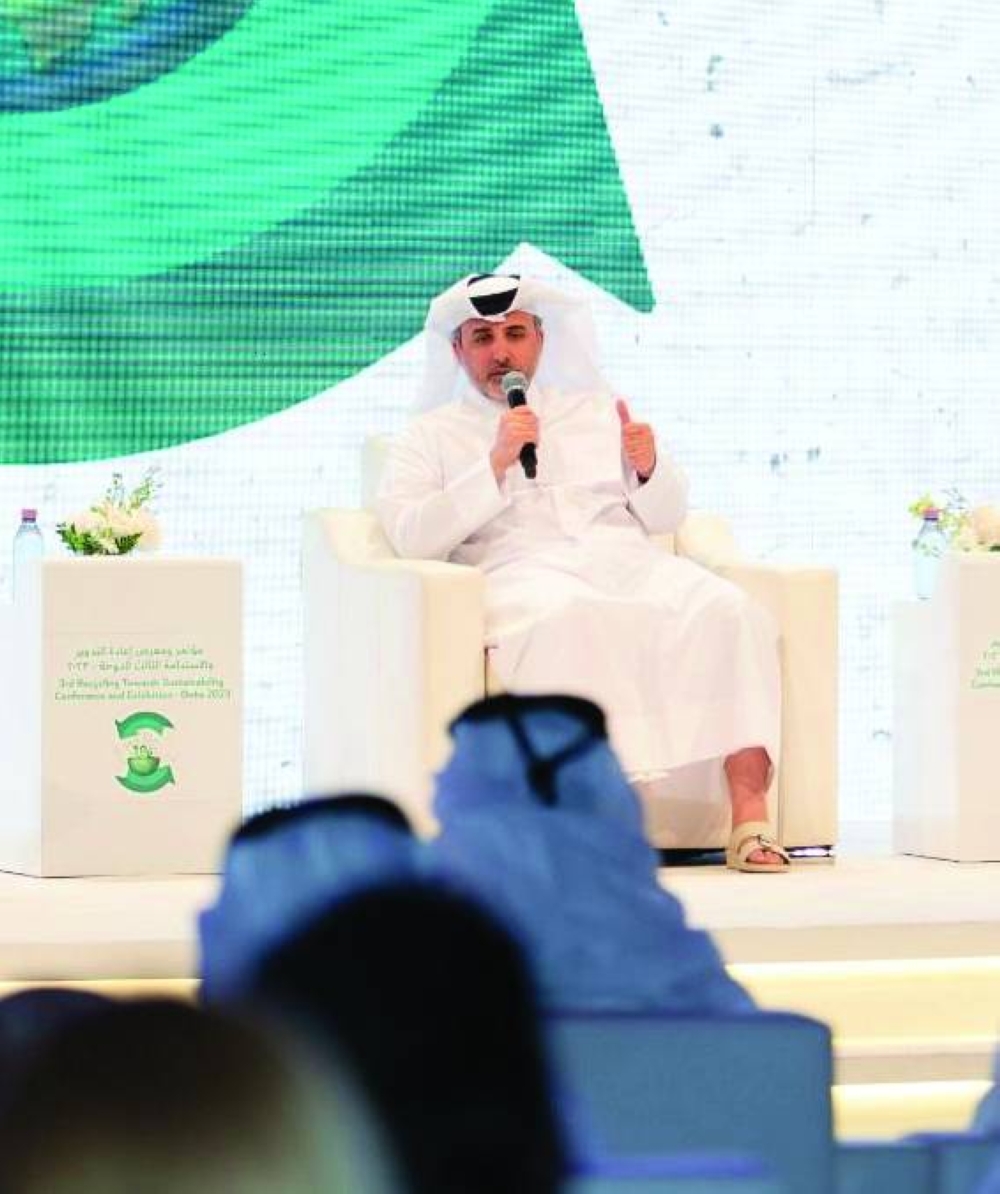- Ministry of Municipality aspires to reach 95% recycling rate by end of 2030
- AI will play major role in generating and sorting waste
He also noted that Artificial Intelligence (AI) will play a major role in the future in generating and sorting waste. This will be done through initiatives that will see the light of day soon, integrating AI in sorting and recycling works.
HE Dr al-Subaie made the statements during a panel discussion at the third Recycling Towards Sustainability Conference & Exhibition-Doha 2023, in the presence of HE the Minister of Environment and Climate Change Sheikh Dr Faleh bin Nasser bin Ahmed bin Ali al-Thani. The event concluded Wednesday.
HE the Minister of Municipality stressed the interest of Qatar, under the leadership of His Highness the Amir Sheikh Tamim bin Hamad al-Thani in the circular economy, sustainability and recycling sector, and its keenness to develop this field. This is confirmed by His Highness's speech at the Shura Council, in which he stressed the State's keenness to develop solid waste recycling and treatment programmes.
He said some 153 plots of land have been allocated to the private sector for recycling works, including factories and companies concerned with recycling, in order to encourage them to recycle waste in all its forms.
HE Dr al-Subaie stressed that the ministry, in co-operation with a number of relevant authorities, has appointed a consultancy to do a study in order to assess the waste situation in the country. Several indicators have been developed with the aim of reducing waste by studying the per capita consumption of waste.
The per capita share of waste is 1.3kg per day compared to developed countries, where the average is 1.58kg per day. This is a good indicator, and there is eagerness to improve this percentage through raising public awareness, while the rate of recycling and re-conversion into energy and other uses has also been studied.
He added that the ministry aspires to reach a 95% recycling rate by the end of 2030.
HE Dr al-Subaie said the ministry was keen to get rid of construction waste and entered into a contract with Qatar Primary Materials Company to collect and recycle such waste for use in new projects. A number of legislations have also been issued and put in place to reduce waste by issuing an initiative obligating waste sorting at the source in blue and gray containers for recyclable and non-recyclable materials.
Further, he stressed the importance of the private sector’s role in encouraging and supporting waste recycling efforts. He noted that the private sector will have a major role in the development of Al-Afjah city, which is dedicated to recycling industries in the country.
He highlighted the role of scientific research and community initiatives through the efforts of the ministry's teams, in co-operation with schools and civil society organisations, to raise awareness about recycling principles through the 18 basic rules of reducing waste. He also referred to the awareness campaigns launched by the ministry as part of the ‘zero waste’ initiative to educate the new generation about recycling.
He praised the positive indicators among male and female students regarding their awareness and understanding of the importance of sustainability’s role and the need to sort waste at the source, adding that future generations have a significant role in eliminating waste.

